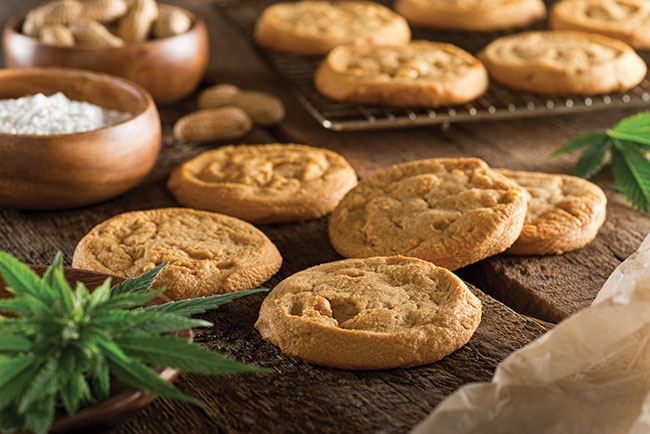
The Final Proof: Pot-Infused Edibles
August 10, 2018
By
Jane Dummer
Will there be cannabis cookies on your menu?
 Before selling THC-infused products, there are regulatory restrictions to consider. Photo: Getty Images
Before selling THC-infused products, there are regulatory restrictions to consider. Photo: Getty ImagesRecreational marijuana will officially become legal in Canada on Oct. 17, 2018. Canada is only the second country in the world and the first G7 nation to implement legislation to permit a nationwide marijuana market. To the south, nine states and the District of Columbia now allow for recreational marijuana use, and 30 allow for medical use.
What does this mean for the Canadian food and beverage industry? It’s not as simple as tossing a bit of marijuana into an existing cupcake formulation and launching it in the marketplace. Off the top, there are regulatory, industry and consumer purchasing behaviour considerations. Currently, there are Licensed Producers (LPs) of marijuana in Canada. These are mostly growers in the medicinal category; however, they are exploring opportunities to expand their acreage. This could include partnering with food companies for the recreational edible market. As for most food and beverage manufacturers, if they want to produce cannabis-infused edibles, it’s anticipated the government will implement a Production Licence process for those facilities.
Sweet Grass Kitchen, a bakery started in 2009, produces and distributes fresh, cannabis-infused baked goods to nearly 500 recreational and medical dispensaries throughout Colorado. Their crop-to-cookie process includes 20 per cent in-house cultivation. Julie Berliner, founder and CEO explains, “Our onsite cultivation is under a separate licence from our production facility. We decided to grow our own for consistency including taste and quality assurance. We work with only two to three other licensed growers for the rest to ensure a consistent high quality product.”
Everyone’s metabolism is different and therefore has a different reaction to cannabis edibles. Berliner describes, “We recommend between one to 5 mg if you have not experimented with edibles. We have an infused gummy fruit snack that can introduce cannabis at a lower level of 5 mg per piece. Another popular item is our buttermelt candies with only 2.5 mg per piece for new consumers wanting an enjoyable experience. Our most popular product are the original chocolate chip cookies that has 10 mg of cannabis per cookie. It retails for around US$25 for 10 cookies. Our retail dispensaries are extremely regulated and consumers are reviewed by dispensaries employees prior to purchasing any products.”
Berliner is trained as a school teacher, however this home baker turned entrepreneur is considered a pioneer in the cannabis infused industry. She often speaks at conferences about her company’s journey not only about the regulatory obstacles but regarding the production side of cultivating and processing with cannabis. In fact, Berliner is already on agenda at the 2019 International Baking Industry Exposition (IBIE) in Las Vegas.
In Canada will cannabis infused foods and drinks have a similar social acceptance to wine and beer for a pleasant experience? Dr. Sylvain Charlebois, Dean of Faculty of Management at Dalhousie University recently published research in Trends in Food Science & Technology about the Canadian consumers’ willingness to consider “recreational” cannabis as a food ingredient. Almost half of the study participants (total sample size = 1087 including both adult men and women) were willing to try cannabis-infused edibles. Charlebois comments, “Curiosity will drive demand at first. But as soon as the market matures, we may see branding, and other features emerge along the way. It will be interesting to how consumers and industry respond to this new environment.”
From the study data, health risks of cannabis-infused edibles were a major concern among the participants. It seems Berliner’s company Sweet Grass Kitchen has successfully addressed this concern at one level for the Colorado marketplace by educating them about edible tolerance. Plus, they describe a step wise introduction and approach on how to experience edibles. Charlebois explains, “The key will be dosage, packaging and access. The regulatory framework will have to address these issues. Public safety will be key, obviously, but industry will need to think about workplace policies. I suspect Human Resource experts will be busy over the next few years.”
As we move closer to October with outstanding questions about the regulatory and industry framework for the edible category, it’ll be interesting to watch the situation for investment, top opinion leaders, education efforts and further health research.
Jane Dummer, RD, known as the Pod to Plate Food Consultant, collaborates and partners with the food and nutrition industry across North America.
www.janedummer.com
Print this page
Leave a Reply